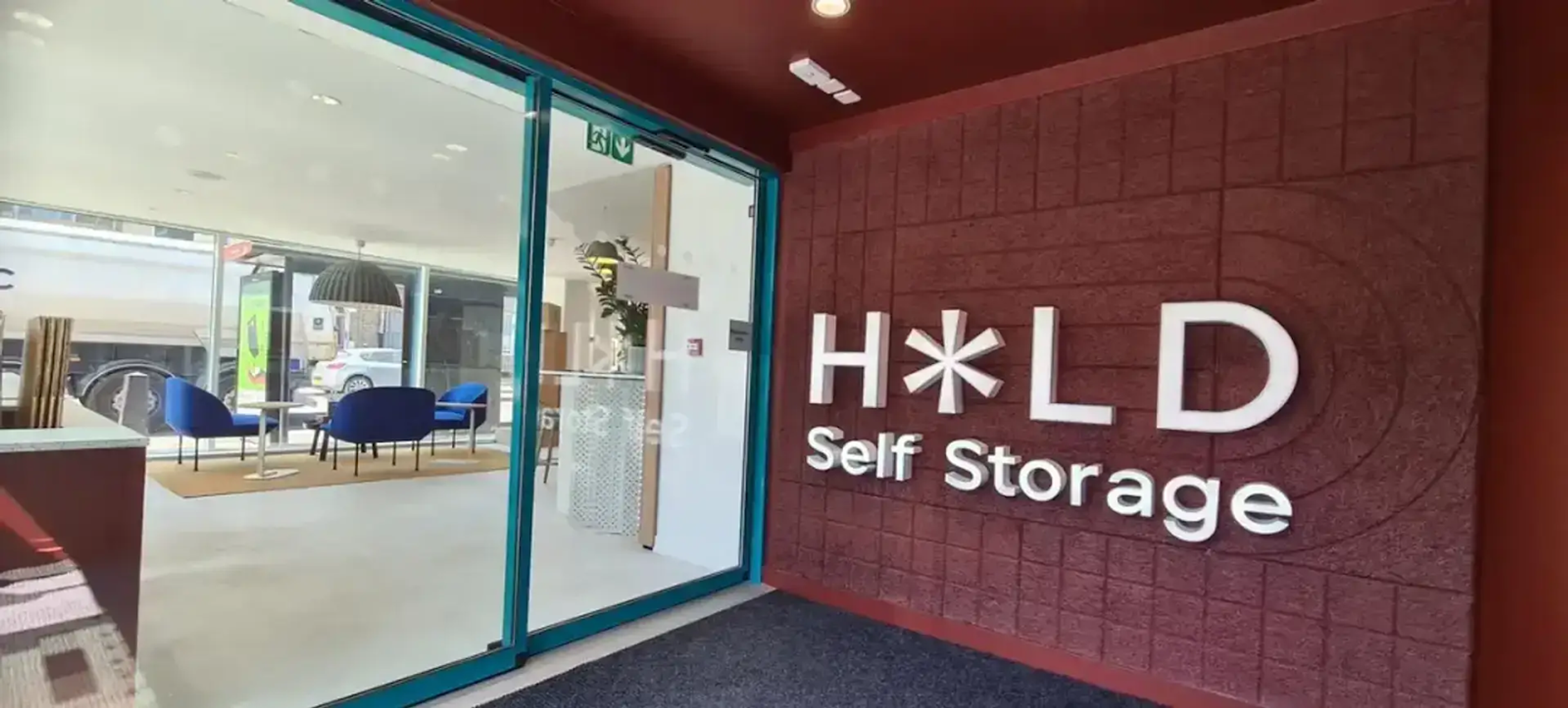Ever wondered if you can write off a storage unit on your taxes? Whether you’re running a business, managing rental properties, or relocating to a new location or job, a storage unit is often a necessary expense. The good news offset storage costs is that, in many cases, it can be tax deductible – but understanding how to properly deduct it is key.
When can you write off a storage unit on taxes?
The first step to claiming a storage unit on your taxes is determining its purpose. The way HMRC categorises storage units – as business-related, rental property-related, or moving-related – will decide if it qualifies for a tax deduction. Knowing the distinction is vital to ensure you follow the correct tax deduction guidelines.
Storage units for business purposes
If your storage unit is used exclusively for business purposes, it is likely tax deductible. This applies to small business owners, self-employed individuals, or freelancers who need to store items like inventory, office equipment, or important files.
Since a storage unit serves as a business function, it counts as a business expense, and you can deduct the associated costs from your taxable income.
For instance, if you run an e-commerce business and use a storage unit to keep products and other office equipment and supplies, those costs qualify as deductible expenses. However, you must ensure the unit is used solely for business purposes.
Mixing personal and business use can cause complications and may prevent you from claiming the full deduction. Clear separation between personal and business use offset storage costs is essential to meet HMRC’s tax deduction guidelines.
Rental property owners and storage units
If you’re a landlord, managing multiple properties can sometimes require extra storage space for maintenance supplies, furniture, or other items related to property upkeep.
In these cases, the cost of the storage unit can be deducted as part of your rental income expenses. Landlords can take advantage of allowable expenses, reducing their taxable rental income.
As with business purposes, you’ll need to keep detailed records. Maintaining accurate records of costs incurred is essential, especially if you claim expenses related to property management, such as storage units, insurance premiums, and property taxes.
These expenses add up, and including them in your tax return can significantly lower your tax bill.
Storage units and moving expenses
When it comes to moving for work, especially if it’s a job relocation or business move, storage units may also qualify as a tax deduction.
HMRC allows certain moving expenses to be deducted, including storage fees, but only if specific conditions are met council tax show.
For example, if you are moving to a new city for a new job and use a self-storage unit to hold your personal belongings during the transition, those costs may be deductible if the move meets HMRC’s requirements.
It’s always a good idea to consult a tax professional to ensure your move qualifies for the deduction, as the rules can be complex.
Self storage for personal use
While self-storage is often necessary for personal reasons – such as storing belongings during a home renovation or while travelling – the costs typically aren’t tax deductible. HMRC does not permit personal expenses, such as renting a storage unit for non-business purposes, to be deducted from taxable income.
However, if you’re using the storage unit for work-related reasons, business inventory, or rental property upkeep, the expense may still be deductible under the correct tax categories.
In summary, if the storage unit is for personal use alone, it’s considered a personal expense and cannot be claimed as a tax deduction. But as long as the storage unit plays a clear role in your business or rental property management, you may be able to claim the costs.
Claiming allowable expenses for storage units
The next step after determining your storage unit’s purpose is to understand how to claim it as an allowable expense. HMRC allows you to also deduct expenses for specific costs associated with running a business or managing rental properties. These deductions help reduce your taxable income each tax year and, ultimately, your tax bill.
Key guidelines for claiming storage unit expenses
The process of claiming a tax deduction for a storage unit involves several important steps:
- Keep Accurate Records – HMRC requires proof that your storage unit is used for business, rental, or moving purposes. Receipts, rental agreements, and documentation of costs incurred are crucial to ensure your claim is valid.

- Consult a Tax Professional – it can be challenging to understand which costs qualify for deductions. Working with a tax professional ensures that you’re making the most of your tax savings while adhering to all legal requirements.
- Separate Personal and Business Use – Ensure that the storage unit is not used for personal belongings if you’re claiming it as a business or rental expense. Mixing personal use with business storage will disqualify the deduction.
Deducting expenses for business purposes
When claiming a storage unit as a business expense, you can combine it with other allowable business expenses, such business items such as office supplies, utility bills pay tax due, or contents insurance. These expenses add up to significantly reduce your taxable income.
Maximising landlord tax breaks
Landlords can claim a variety of rental expenses to reduce their taxable rental income, and storage units are no exception. Along with storage unit fees, other allowable expenses include mortgage interest, property taxes, and letting agent fees.

Claiming moving expenses
If you’re moving for a job or business relocation, storage unit fees may be included as part of the moving expenses deduction. However, HMRC has strict rules on what moving expenses qualify for tax relief. You must meet the distance test and other eligibility criteria to claim tax relief for moving expense. Working with a tax professional can help you determine whether your move qualifies for this deduction.
Other costs associated with a job-related move to new location, such as removal services or renting temporary storage, can also be deducted as part of the moving expense deduction for claims. These deductions provide welcome tax relief during the stress of relocating.
What other costs can you deduct?
Besides storage unit costs and landlord insurance, there are various other allowable expenses that you may be able to write off or claim when filing your tax return. These include:
Finance costs
If you’ve borrowed money to pay taxes or fund business operations or rental properties, you can deduct the interest paid as a finance cost.
Legal fees
Any legal fees related to managing rental properties – for example, resolving disputes with tenants or evicting non-paying tenants – are often fully tax deductible.

Capital expenditure
Large expenses for upgrading or improving business or rental properties, such as purchasing equipment, can qualify as capital allowances, reducing your taxable income over time.
Managing multiple rental properties
If you’re a landlord with multiple properties, storage units can be a practical solution for managing maintenance supplies, extra furniture, or tools. The costs of these storage units are typically tax deductible, but don’t forget that there are many other rental income expenses that landlords can also claim tax relief.
For instance, keeping accurate records of management fees, building insurance, landlord tax breaks, and letting agent fees will allow you to reduce your rental income and overall tax burden.
Additionally, costs associated with maintaining the rental properties themselves, such as repairs or replacements, may qualify as deductible expenses.
Storage units and evicting non-paying tenants
If you find yourself dealing with non-paying tenants and the process leads to needing extra storage – for example, storing items after an eviction – the storage unit expenses can be your tax deductible expenses.
Legal fees involved in eviction proceedings are also considered allowable expenses, helping to reduce the financial impact of dealing with such challenging situations.
Leveraging insurance premiums for storage units
While managing storage units, especially for business or rental property business purposes, it’s a good idea to insure the contents. Insurance premiums paid for protecting the items stored in the unit can also be a tax deductible expense if the storage is for business purposes or rental property management.
Many landlords and business owners opt for contents insurance to safeguard their assets, and this type of insurance can qualify as an allowable expense when filing tax returns.
How to ensure compliance and avoid common mistakes
Navigating tax deductions can sometimes feel overwhelming, especially when handling multiple deductible expenses like storage unit costs, moving expenses, utility bills and insurance premiums.
To maximise your tax savings while staying compliant with HMRC rules, it’s important to avoid common mistakes that could lead to penalties or missed tax deductions too.
Maintain detailed documentation
Keeping detailed and accurate records is essential. This includes keeping receipts, rental agreements, invoices for storage unit fees, and any other expenses you plan to deduct. HMRC may request proof that the storage unit was used for allowable purposes, so make sure all documentation is in order.
Without proper records, it could be difficult to claim expenses for your deduction, and you may lose out on potential savings.
Consult a tax professional
Given the complexity of tax laws and the various categories of tax deductions, it’s always a good idea to seek professional advice from a tax professional. They can help ensure you’re maximising your allowable deductions, properly categorising your expenses, and remaining compliant with all relevant guidelines.
A professional can also guide you on other tax deductible expense and opportunities, such as legal fees, capital expenditure, and building insurance, which can further be used as tax deductions.
Conclusion
In conclusion, yes – you can write off capital expenses for a storage unit on taxes, but only under certain conditions. Whether you’re using the unit for business purposes, managing rental properties, or handling moving expenses, you may be able to claim the costs as tax deductions.
By following HMRC’s own storage units tax deductible deduction guidelines, maintaining clear records, and ensuring that the unit is used for eligible purposes, you can reduce your taxable income and save money on your taxes.
HOLD Self Storage has all your self storage needs!
If you're in search of a self storage facility in London that offers climate-secure units and first-class security, HOLD Self Storage is here to help. With a friendly team here to assist your every storage need, our Kings Cross facility will keep your belongings safe and sound.

Contact us today for a free quote or to learn more about our self storage service!
Frequently asked questions
When can I access my storage unit?
At HOLD, we offer 24/7 access hours and round-the-clock customer assistance. These crucial features are included in all our storage solutions at HOLD. If your business operates outside traditional business hours, it allows for late-night or early-morning inventory management.
What is the minimum rental period? Is there long term storage?
We bill monthly, but also take pre-payment for longer stays, which can unlock a discount.
What notice do I have to give on my storage unit?
We require one month's notice; unused rent and deposit are refunded upon checkout.
Do I need insurance for my belongings?
We offer Store Protect which means that we accept liability of your goods whilst in our care if taken.
Are trolleys or forklifts available?
Yes, the use of trolleys is complimentary for all customers. We do not have any forklifts at the store.


